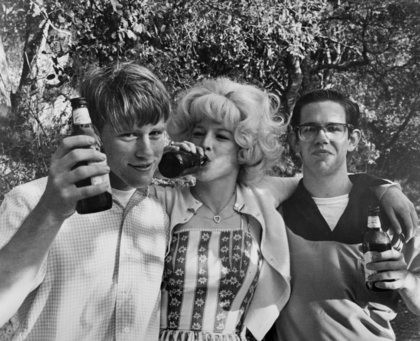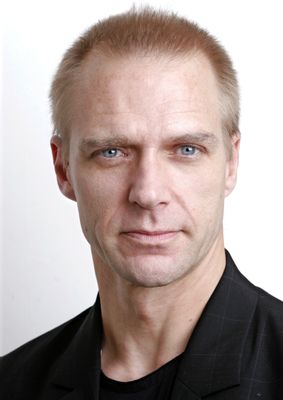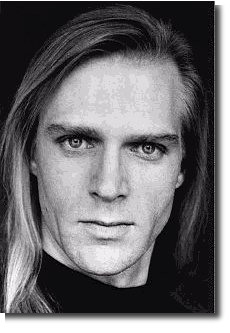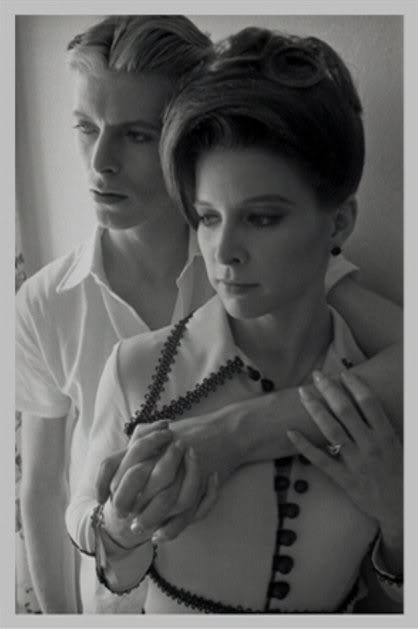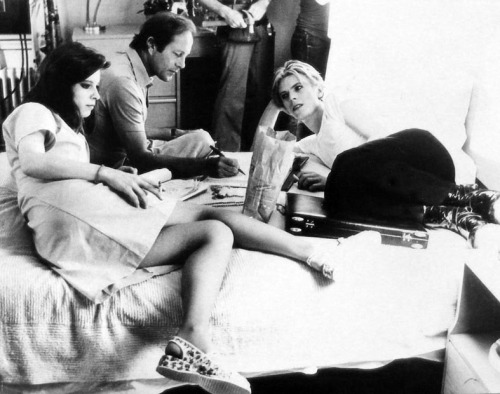 Candy Clark was a successful model in New York when she won the role of Jeff Bridges's girlfriend in John Huston's FAT CITY (1972). She followed it up with an Oscar-nominated turn as the lovable Debbie in George Lucas's AMERICAN GRAFFITI (1973), a fresh face amongst fellow newcomers Richard Dreyfuss, Ron Howard, Charles Martin Smith, Paul Le Mat and Harrison Ford. Candy has been a vivacious, natural, charming addition to the cast of films such as THE MAN WHO FELL TO EARTH (1976), THE BIG SLEEP (1978), HANDLE WITH CARE (aka CITIZEN'S BAND) (1978), BLUE THUNDER (1983), AT CLOSE RANGE (1985) and the very underrated MORE AMERICAN GRAFFITI (1979). She has worked with some of cinema's top talents, and recently had roles in ZODIAC (2007) for David Fincher and THE INFORMANT! (2009) for Steven Soderbergh. She will soon appear as JJ (A.J. Cook)'s mother in the top-rated TV series, 'Criminal Minds'. I interviewed Candy about her experience making her breakout movie, the much loved AMERICAN GRAFFITI.
Candy Clark was a successful model in New York when she won the role of Jeff Bridges's girlfriend in John Huston's FAT CITY (1972). She followed it up with an Oscar-nominated turn as the lovable Debbie in George Lucas's AMERICAN GRAFFITI (1973), a fresh face amongst fellow newcomers Richard Dreyfuss, Ron Howard, Charles Martin Smith, Paul Le Mat and Harrison Ford. Candy has been a vivacious, natural, charming addition to the cast of films such as THE MAN WHO FELL TO EARTH (1976), THE BIG SLEEP (1978), HANDLE WITH CARE (aka CITIZEN'S BAND) (1978), BLUE THUNDER (1983), AT CLOSE RANGE (1985) and the very underrated MORE AMERICAN GRAFFITI (1979). She has worked with some of cinema's top talents, and recently had roles in ZODIAC (2007) for David Fincher and THE INFORMANT! (2009) for Steven Soderbergh. She will soon appear as JJ (A.J. Cook)'s mother in the top-rated TV series, 'Criminal Minds'. I interviewed Candy about her experience making her breakout movie, the much loved AMERICAN GRAFFITI. (My interview with Candy about THE MAN WHO FELL TO EARTH. )

AMERICAN GRAFFITI covers one night in the life of a group of teenagers growing up in the early '60s. Some of them are moving away to college, some are staying behind. We get to see them cruising, getting into mischief and just hanging out. How similar were your teen years?
The thing about AMERICAN GRAFFITI is that it captured most people's teenage years from that era. Many people I speak to feel it's as if they are watching a documentary of that time. The reason it is regarded as a classic and has such a huge following is because so many people identify with it, and it's true to everybody from that era, the late '50s to mid '60s. It's a very authentic film, and the music really helps to evoke that period. The movie takes place during one night with all the characters cruising, and that's what we all did in the US during that period. Some people from countries such as Japan and Sweden enjoy that lifestyle from the late '50s to the mid '60s. They collect the vintage and custom cars and have adopted the look of the time, with the big bouffant hair and rolled-up jeans.
When did you first hear of the project?
I don't remember really, but I just went up for it. I had an audition which was really a general meeting with George Lucas. I never heard back from him. At that point there was no script, we were just being seen. I got hold of the script about a week later and I identified with it so much. It was basically my lifestyle in Fort Worth, Texas when I was in my teens. I pushed my manager to get me another audition, but she told me it was practically impossible to get seen again once they had already seen you. But she did it! The next thing I knew was that I was being called in to do a screen test. I had to do the scene where Toad picks me up and tells me that I look like Connie Stevens. We did the test at Dove Films. This was was cinematographer Haskell Wexler's commercial shooting space, and it was pretty big. Actors and actresses from all over L.A. tried out. It was very competitive. I remember seeing Judy Strangis from the TV series 'Room 222'. I did my screen test with Charles Martin Smith, who had already been cast. Haskell and George Lucas were there. We did the test in a little alcove with a wooden park bench instead of the car. I didn’t think I had a chance because I was four inches taller than Charlie. I guess because I felt this way, I came across as relaxed in the screen test. Lo and behold I got the part! George filmed the screen test on this cheap, plastic pink-coloured video camera. Years later I asked George if I could see my test, and he told me that it had come out black! So I asked him "Why did you pick me?". He said "Well, I just liked what I saw through the viewfinder."
Were you familiar with George's work before AMERICAN GRAFFITI?
I had seen THX 1138 (1971) at the theatre but I didn't realise George Lucas had directed it until much later. I don't remember much about the movie, but I do remember there was a lot of running through covered parking lots and tunnels! (Laughs.)
How about AMERICAN GRAFFITI's producer, Francis Ford Coppola?
I met him in Queens, New York when he was doing the screen tests for THE GODFATHER (1972). My friend Fred Roos was casting it, and he took me along for a few days in a row. I got to see all these actors trying out, people like Jimmy Caan.It was really interesting. Actually, Francis did a screen test with me and he told me later that he almost got fired for it! Paramount saw the test and accused him of wasting film. It was only a minute long, but it must have been a shock for the studio heads to see someone who had no business being there turn up in the hundreds of tests. I was wearing a long black cape with a hat, and Francis pretended to crank me down so that my feet disappeared, and then he cranked me back up! That was the extent of it.
Did you have a feeling that AMERICAN GRAFFITI was going to be a big film?
I knew it was going to be a hit. Richard Dreyfuss would always say no, but I was certain. The script was so good, and it was so authentic to the time. Universal didn’t have any great faith in the movie. The studio heads thought it was going to go straight to drive-in theatres, and didn't understand what George was trying to do. They also hated the title, and didn't understand what the word 'graffiti' had to do with anything. Francis Coppola came to the set and told all the actors that we had to come up with a new title. Francis came up with 'Rock Around the Block'. I thought that title stunk! It was so clunky! It would have killed the film. I loved the title 'American Graffiti'. I thought it had a great flow, and I told Francis he shouldn't change it.
Was Debbie the part you wanted to play the most? Did you see it as the best part?
Yeah, I always saw it as the best part. The character had a lot to do and she had dimensions and opinions. I guess you could also say she supported animal rights. When Toad is talking about hunting wild animals, she's clearly not happy about it! She is also a kind person who tries to make Toad feel good about himself at the end of their disastrous evening!
You show a real gift for comic timing in the film.
Thank you!
How did you prepare for the role of Debbie?
Well, the character was basically created once I put on the costume and the wig. I just coasted on the writing. It was a good script. I tried to play the character as realistically as possible. I based her on people I knew and on myself, because her experiences weren't outside my realm.
My hair doesn't hold a curl. The hairdresser and I were puzzled how we were going to keep my hair in a flip. We tried out a lot of different wigs and I chose the platinum blonde one. I loved it! It was perfect. The make-up lady told me it would really show up because we were shooting at night, and it did. She was right!
How was shooting at night?
Night shoots are very intimate because there aren't a lot of people standing around on the street corner watching. You feel less exposed. It was hard because it was cold, damp and foggy that summer in Petaluma. It was freezing! I can't tell you how cold it was. Thank God for the wig I was wearing. It acted like a hat! All I had on was a lightweight sweater and a spaghetti strap dress. We were trying to convince the audience that it was a hot summer’s night, but in some scenes you can see our breath! Night shoots are also very exhausting, and we shot for 28 nights on location. I don't know how people do night shoots.
Was George aiming for a very naturalistic movie? He seemed to be willing to include the lucky accidents that sometimes happened – for example, Toad crashing his scooter and almost dropping the Old Harper’s.
We were on a limited budget and a limited shooting schedule. We couldn't do many takes. George printed the best of what he could get. Sometimes mistakes happened and if George liked them, he would print them.
Who hung out with who during filming?
Harrison, Paul and Bo hung out together. They were kind of like the 'bad boys'. And then there was me, Ronnie, Charlie, Richard and Cindy.
Did people look up to Harrison in any way because he had been acting longer?
No, he was just beginning as an actor! He was as poor as a churchmouse when he made this film, and his main occupation was as a finish carpenter. He used to make these beautiful, finished cabinets and shelving.
Is it true that Harrison, Bo and the guys got up to some rowdy hijinks during filming?
If you put a group of young people together in a Holiday Inn, what's going to happen? There is going to be some drinking! When they weren't working, they would just hang out and drink beer or whisky. It wasn't abnormal behaviour or anything scandalous.
Why do you think it is such a vibrant movie?
I think shooting at night and Haskell's documentary-like photography gave it a real, authentic feel. Some scenes are so dark. You can only hear people talking and not see them! I wonder if they have brightened the picture for the Blu-ray. George and his team created a real moneymaker for everybody - George, Universal, Francis. We're approaching the 40th anniversary and people are still talking about it! It seems to be getting bigger and bigger. Without AMERICAN GRAFFITI, George wouldn't have been given the chance to make STAR WARS (1977), which was a bigger-budgeted film. If STAR WARS hadn't hit big, George woud have had a much different career I guess. He might have continued making lower-budgeted films.
Did you test for STAR WARS?
No. I called George up to get him to consider me for it, but he said "We aren't going to have any AMERICAN GRAFFITI people on another planet!". And then he cast Harrison Ford! (Laughs.)
What was George's style as a director?
He was very quiet. He was overworked and exhausted on the movie, and as the shoot went on, he got quieter and more exhausted! He was editing the movie during the day in L.A. and then shooting all night. I couldn't handle that kind of responsibility. You're like the Master of Ceremonies, you're overseeing the whole thing. It's too much for me. Besides, I’m too lazy!
Was Coppola a big presence on set?
No, he came and went.
Were you surprised when Ron Howard turned out to be a talented director?
Ronnie brought this little hand-cranked viewer. He showed me this little film he had made that had won the Second Prize at the Kodak Film Contest. In the film his brother Clint fell asleep leaning against the tombstone of a cowboy, and dreamed he was in the Wild West. There were gunfights, bad guys and horses in it. Ronnie was eighteen when we made AMERICAN GRAFFITI, and I think he made theis short film when he was sixteen or seventeen. I told him "Ronnie, wow!!! You're a great director! You're going to go places!". And sure enough he did. He did EAT MY DUST (1976), and started out working with Roger Corman, like a lot of young directors. He kept moving up through the ranks, and now look at him!

Did making the film increase your confidence as an actress?
I guess. I haven't thought about it. I liked my work in it when I saw the film at the cast and crew screening. It was held at the Writer's Guild, and it was packed to the rafters. I remember that when the lights went down, and the first image was of Mel's Drive-In with 'Rock Around the Clock' on the soundtrack, everybody just jumped up out of their seats and shouted 'Yay!!!". I thought 'Well, we've got a hit here!'. I wasn't surprised at all.
Where were you when you heard of your Oscar nomination?
I got woken up by my PR guy. At that time, the announcements came out really early in the morning, like six o'clock in the morning. I was hoping I would get nominated. I had run a little campaign that I spent a little bit of money on. It ran for about two weeks before the announcements. The Oscar campaigns are a lot longer now.
How was the experience of attending the Oscars?
I went with Jeff Bridges, and the whole thing was a dream come true, a real fantasy. I have never been as hugged, kissed, congratulated or given so many flowers in my whole life! During this time I got a lot of acknowledgments, pats on the back and telegrams. It was great.
Did you think you had a good chance of winning?
No, I knew I wasn't going to win. I just wanted to be nominated. I thought Sylvia Sidney was going to win for SUMMER WISHES, WINTER DREAMS. I considered her the 'sentimental vote'. She had been acting for a long time and deserving of notice. I was looking down the aisle at Sylvia Sidney when they were making the announcement because I wanted to see her face when she won. It turned out I was looking at the wrong person because Tatum O'Neal won for PAPER MOON! I was shocked! Tatum was so young, she was about nine years old! It was a fabulous evening. I highly recommend everyone being nominated for an Oscar! Everyone should be nominated once!
Jeff finally won for CRAZY HEART (2009) after many nominations.
Well, I was not surprised. He is a master. I told him he was going to win for CRAZY HEART. I gave him a lucky two-dollar bill and wrote on it, wishing him luck. And sure enough, he won! I was hoping he would say "Thanks Candy for the lucky two-dollar bill!" in his aceptance speech. But he didn't! (Laughs.) I guess he forgot. I would forget. I would be like a deer in the headlights and hyperventilate!
Yeah, they did. I had a film called REPORT TO THE COMMISSIONER (1975) where I was going to play an undercover narcotics police officer. I did lots of research for it, about three or four weeks. I spent time with New York undercover cops, and got the wardrobe together. Jeff and I had gone down to the Cartagena Film Festival. Before we went, I went to the Board of Health and got a shot for smallpox. The doctor told me "Be on the lookout for anyone with yellowed skin". Sure enough, I came back with hepatitis and lost the role. I had two weeks in the hospital and two weeks bedridden. I begged the studio to wait but they had to go forward without me because they were starting filming in two days. It was a big disappointment to me, and my career took a nosedive because the momentum was gone after that. They had to give the role to someone, and it was Susan Blakely, who hadn't had enough time to do the research I had done. I saw the film and there she was in my wardrobe. I was like 'Aaaargghhh!'. Oh well, those are the breaks.
How does GRAFFITI impact on your life now?
I do a lot of hotrod shows. People love the film and tell me how much they love the character Debbie! They tell me where they were when they first saw it and how many times they have seen it in a row. Back in the day, they didn't shoo you out of the theatre after one performance and you could just stay and watch the film as many times as you wanted. They're so happy and excited. It's just great. Some people even get teary-eyed because they took their girlfriend to see it and they are still married. They tell me I look the same as I did in the movie! I guess they look at the characters through rose-tinted glasses. The people are always so kind and nice. Paul Le Mat, Bo Hopkins, Cindy Williams and I have all done quite a few of these hotrod shows. They're fun. I love the movie and I will do all I can to promote it and make it even bigger.
Are you an expert on the AMERICAN GRAFFITI cars now?
I guess I am! (Laughs.) I know the histories of the cars and I was there at the time. When you talk to these hotrod guys you had better know your stuff!
 Have you had much contact with the cast and crew
over the years?
Have you had much contact with the cast and crew
over the years?Not really. I know everybody wants us to be having barbecues together like 'I Love Lucy' or 'Leave It to Beaver', with all our grandkids around! But you know, life moves on, people get married, they move to the East Coast, they have children. Every now and again you run into someone from the movie and it's all very pleasant. Nobody is mean with each other, or mad at each other. It's just like any job where you were tight at one time and then time marches on. I've kept in touch with Bo, Paul and Cindy. They're all very good people. People think Harrison, George and Ronnie were superstars at the time, but everybody was very modest, very young and just beginning their careers.
Do you think artists develop a mystique or more charisma as they become more famous?
Sure. Their life becomes different. They are catered to, complimented constantly, they are paid the big bucks, they live in a fine house, they have the prettiest women or most handsome men...of course it's going to affect you! The adulation is a big impact and it's coming at you constantly. You will definitely become a different person. You will be you - but you with a big polish. It's not a bad thing to become a big star. It's a great thing.
Are artists special people?
What makes actors special, like singers, like painters, are their ability to create something out of thin air. They are like magical people. A lot of people keep their talents hidden because of shyness or lack of confidence in themselves but there are a lot of talented people out there, as we have discovered with TV shows like 'America's Got Talent' and others. Even Grandma Moses didn't get discovered until she was ninety years old! Some people are lucky and meet the right people or know how to use their talent, but some aren't. Even Van Gogh was undiscovered in his lifetime. If I had known him I would have bought all of his work!
I would like to thank Candy for the generous use of her time and for her extensive answers.
Candy was interviewed by telephone on 18th April 2012.
Paul Rowlands is a Japan-based writer. After completing a BA Humanities course (majoring in English and Science) at the University of Chester, he moved to Japan in 1999. He writes for the James Bond magazine, Kiss Kiss Bang Bang, has had articles published on Press Play and has had an almost lifelong obsession with cinema, something the advent of DVD only increased. Paul is also a writer of so far unpublished short stories and novels, and is planning his first short film.
